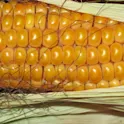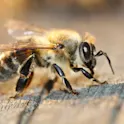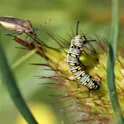Frontiers Communications
Editor
Editor

Life sciences
03 Jan 2017
Groups of authors citing each other is becoming an issue in scientific publishing. With a new approach, researchers discuss how to identify the problem

Health
22 Dec 2016
Extra vitamin D can restore good bacteria in the gut, according to a study in mice, giving hope in the fight against risk factors for diabetes and heart disease

Life sciences
22 Dec 2016
Dominant Arctic char produce sperm that swim faster in diluted ovarian fluid, while subordinate males produce sperm that swim faster in water — By Conn Hastings —

Life sciences
21 Dec 2016
Study shows men are prone to overeating when spectators are involved, for reasons that differ from women.

Sustainability
15 Dec 2016
Using crop models as a tool to assist nitrogen management decisions in corn as a win-win for the agronomy business and the environment — By Kate E. Larkin — With an innovative modeling approach, researchers set out to examine corn and soybean yields and optimal nitrogen (N) fertilizer rates. In their study, recently published in Frontiers in Plant Science, they uses a 16-year long-term dataset from central Iowa, USA, with a state-of-the-art simulator that modeled corn and soybean yields, improving predictions of optimal N fertilizer rates for corn. This has global relevance for food security and sustainable agricultural practices in light of future climate change scenarios. Corn, also known as maize, is one of the top three staple crops farmed globally with global production predicted to rise from 720.8 million tons in 2015 to 872.9 by 2030, according to the Food and Agriculture Organization. Corn also requires large nutrient supplements in the form of fertilizer due to its fast-growing, nitrogen hungry characteristics. And global demand is growing. “A huge challenge in agriculture is predicting the optimal N fertilizer rates which, if fine-tuned, can reduce N losses and increase profits”, explains Laila Puntel, a graduate student and research assistant […]

Neuroscience
13 Dec 2016
Engaging in voluntary physical exercise helps protect the brain from the damaging effects of a stroke, shown in mice. — By Tania Fitzgeorge-Balfour, Science Writer, Frontiersin.org The after-effects of a stroke can be life changing. Paralysis, speech problems and memory loss occur in varying degrees of severity, depending on the location and amount of brain tissue damage. How far a stroke patient can recover is largely determined by the ability of the brain to reorganize itself. Understanding what can improve this ability is therefore essential in developing the best therapies for rehabilitation. Voluntary physical exercise is known to have a positive effect on a person’s overall well-being. It delays memory loss in old age and improves cognitive ability. A new study, published in the open-access journal Frontiers in Aging Neuroscience, has linked the positive effects of exercise on the brains of mice to their better recovery after a stroke. “Our study suggests that physical exercise can be used as a preventive, as well as a therapeutic approach to aid recovery after a cortical stroke,” says Dr. Evgenia Kalogeraki, who conducted this research at the in the laboratory of Prof. Dr. Siegrid Löwel, at Georg-August-University, Germany. Previous research of the Löwel […]

Frontiers news
13 Dec 2016
The 1st annual Frontiers Spotlight Award Committee has been announced and will reward an outstanding Research Topic with US$ 100,000 to organize a conference.

Neuroscience
12 Dec 2016
Researchers show a molecular mechanism that regulates memory specificity over time, and point to how understanding memory in honeybees could help us combat degenerative brain diseases

Life sciences
08 Dec 2016
A new approach tries to answer one of the oldest question of human history: “what is time?”

Psychology
08 Dec 2016
Study shows learning strategies are key to academic achievement and describe behavioural interventions that could reverse underachievement – By Abigail Pattenden, Science Writer – Not all children do well in school, despite being intellectually capable. Whilst parental relationships, motivation and self-concept all have a role to play, a recent study published in the journal Frontiers in Psychology shows that children’s learning strategy is key for academic success. The study showed that students with normal scores on intellectual tests but that have poor grades in secondary school are also not as good at acquiring and retaining information, or later applying it. Lead researcher of the study and professor at the University of Alicante in Spain, Juan Castejón, concludes that underachieving students appear to employ all of the learning strategies considered, but to a lesser extent than normal and overachieving students, and this seems to be the key for academic success. “The underachievers group of students also has poorer attitudes to learning goals, poorer relationships with their parents, and lower emotional stability than their peers,” says Castejón, “but learning strategies showed the strongest relationship with achievement.” By comparing underachievers with normal- or over-achievers, the work brings new insight on how educational interventions […]

Health
05 Dec 2016
Research suggests feedback loop between greater executive function and healthy behavior

Life sciences
01 Dec 2016
Researchers turn to specific volcanoes such as Etna in Sicily to gain insight into volcanic and non-volcanic activities of the Earth. By Fiona Boni, Science Writer A professor at the University of Roma Tre, Valerio Acocella focuses his research on understanding what triggers eruptions and what causes the propagation of the magma to the earth’s surface. He has a special interest in advancing what we know about the structure and pre-eruptive behaviour of the most disruptive type of volcanoes, known as calderas. These are large volcanic depressions formed when a magma chamber is emptied by a volcanic eruption. “Knowledge and prevention are the essential ingredients to mitigate risks,” says Acocella. “Understanding how calderas work is important when forecasting volcanic activity, and also in forecasting large eruptions.” Using similar mechanisms that have been used in studying calderas, Acocella and his team are now also trying to understand and forecast eruptions in composite volcanoes, such as Etna, using a combination of tools. “Volcano Etna has had some interesting eruptions in the last decades. In close collaboration with colleague Marco Neri (INGV Catania), we have been researching how this volcano works along with other processes that are really aren’t strictly volcanic, such as the instability of the volcano flank,” he explains. Based on […]

Life sciences
30 Nov 2016
Predators eavesdrop on insect-plant interactions, while plants backstab the insects they attract, recent research shows

Neuroscience
29 Nov 2016
Sleep deprivation affects children’s brains differently than adults’, according to a new study By K.E.D. Coan, Science Writer Any parent can tell you about the consequences of their child not getting enough sleep. But there is far less known about the details of how sleep deprivation affects children’s brains and what this means for early brain development. “The process of sleep may be involved in brain ‘wiring’ in childhood and thus affect brain maturation,” explains Salome Kurth, first author of the study published in Frontiers in Human Neuroscience, and a researcher at the University Hospital of Zurich. “This research shows an increase in sleep need in posterior brain regions in children.” This contrasts with what researchers know about the effects of sleep deprivation in adults, where the effect is typically concentrated in the frontal regions of the brain. After staying up too late, both children and adults need a period of deep sleep to recover. This recovery phase is characterized by an increase in an electrical pattern called slow-wave activity, which can be measured with a non-invasive technique called an electroencephalogram. With a large number of electrode channels distributed across the scalp, this method also detects which brain regions show […]

Frontiers news
28 Nov 2016
Frontiers in Marine Science is excited to announce the expanded scope of our previous ‘Marine Systematics and Taxonomy’ specialty section, with the new name ‘Marine Evolutionary Biology, Biogeography and Species Diversity’. We proudly welcome our new Specialty Chief Editors, Prof. Dr. Thomas Wilke and Dr. Katrin Linse. Prof. Wilke joins us from the Department of Animal Ecology and Systematics at Justus Liebig University, Germany, where he is the head of the Systematics and Biodiversity Group. His research focuses on the phylogeny, biodiversity, and evolutionary strategies in aquatic gastropods, invasion biology, and the consequences of global change in aquatic ecosystems. Dr. Linse is a Senior Biodiversity Biologist at the British Antarctic Survey in the United Kingdom, where she is part of the Biodiversity, Evolution and Adaptation team. She specializes in the biodiversity of shelled marine mollusks and in the biogeography, phylogeography, and evolution of Antarctic and deep-sea marine invertebrates. She is currently involved in ecological studies and species identifications on hydrothermal vents in the Southern Ocean and previously led the team who designed the first Antarctic database of benthic species. Prof. Wilke and Dr. Linse have joined forces to develop a unique outlet where researchers can publish work on the evolution of […]
Get the latest research updates, subscribe to our newsletter